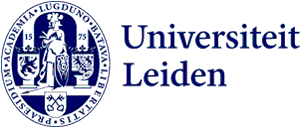
Samatar Botan investigates ancient Aksum with a Mosaic 2.0 grant
In July 2022 our alumnus Samatar Botan received the news that he had received the NWO Mosaic 2.0 grant. This grant enables him to start a PhD research at our Faculty on the ancient Aksumite Empire, a topic that is close to his heart. We speak with him about his ambitions and drive. ‘I want to know more about my mother country Somalia.’

Missing African history
Samatar Ahmed Botan arrived as a fugitive in the Netherlands in 1994. Originally from Somalia, he was from a young age fascinated by history. 'All during my school-going years, from elementary to high school, I missed lessons about the history of Africa in the classroom,’ Sam explains. ‘The only part of Africa that came up was Egypt, but always in connection to the Romans. My interest led me to studying archaeology, with its diverse activities from excavating and being up to your knees in mud, to reading dusty old books in the library.’
The choice for Archaeology in Leiden was made due to its wide variety of specialisations on offer. ‘I hoped to maybe do something with African history, with the sole reason is that I want to know more about my mother country,’ he states. ‘I can tell you all about the Dutch trechterbekercultuur, but if you ask me to tell you about the Horn of Africa in that same period, I've got nothing.’
Fateful coffee
One fateful day, Sam ran into Marike van Aerde, who had started a research project called Routes of Exchange, Roots of Connectivity. ‘The project focuses on trade networks across the Indian Ocean, and she told me she wanted to include the Horn of Africa and the Arabian Peninsula.’ What started with a chance meeting at the corridor's coffee machine ended, 1.5 hours later, with a plan for a PhD project.
Proposals
So Sam started to develop his research ideas. While juggling his job at the National Museum of Antiquities, where he guided tours, and long periods of fieldwork in the Arabian Peninsula, he worked on a proposal for the Mosaic 2.0 grant. ‘For a couple of months I worked in Abu Dabi as a commercial archaeologist, making days from 6.00 to 18.00 hours, then sleep for an hour, and then work on the proposal from 20.00 to 22.00 hours. It was very exhausting.’ He laughs. ‘Then, when I returned to the Netherlands, I had a week to prepare for the interview. It is still a surreal feeling that I actually got the grant. Out of the 13 people receiving it, I'm the only archaeologist.’

Trade empire
Central in Sam's research is Aksum, an empire based in the Horn of Africa roughly from 100 BC to 800 AD. ‘It was a trade empire, and controlled the trade in the Red Sea and Indian Ocean, connecting India to Arabia, Alexandria, and Rome. Roman sources actually complain about Aksum's tariffs and taxes, even suggesting to conquer the region.’ Due to Roman overextension, however, a campaign against Aksum never materialised. ‘From sources like these, we know that the empire was well known in antiquity. Archaeology-wise, however, we hardly know anything about Aksum. The major factor here is the colonial period: everything south of Egypt and Nubia was not worthy of investigation.’

Containers of antiquity
Hopefully, Sam's research project will draw new attention to this buried empire. ‘I will focus on the study of ceramics from Aksum, with the goal to reconstruct maritime routes from Aksum to Alexandria, and from Aksum to India.’ Ceramics, the containers of antiquity, held liquids, and all kinds of food products. ‘With residue analysis we may be able to understand what was transported around the ocean, and this can shed light on the trade relations from the Aksumite perspective, which has never been done before.’ The project's aim is to generate new data that can be used as a puzzle piece in the giant jigsaw that is the Aksum empire.
Filling the gaps
Being the first empire that we know of that converted to Christianity, Aksum is sometimes dubbed ancient Ethiopia, though its sway lay far outside the contemporary borders. ‘Up to half of the modern country of Somalia was part of the Aksumite empire. This is probably one of the few empires that we have archaeological data on, even hardly studied, that actually touches upon my mother country,’ Sam explains. ‘For me studying Aksum fills one gap inthe history of Somalia. Now I'm planning to join an excavation in Somaliland. I have never excavated in the Horn of Africa before! It almost feels like getting back to my roots.’
